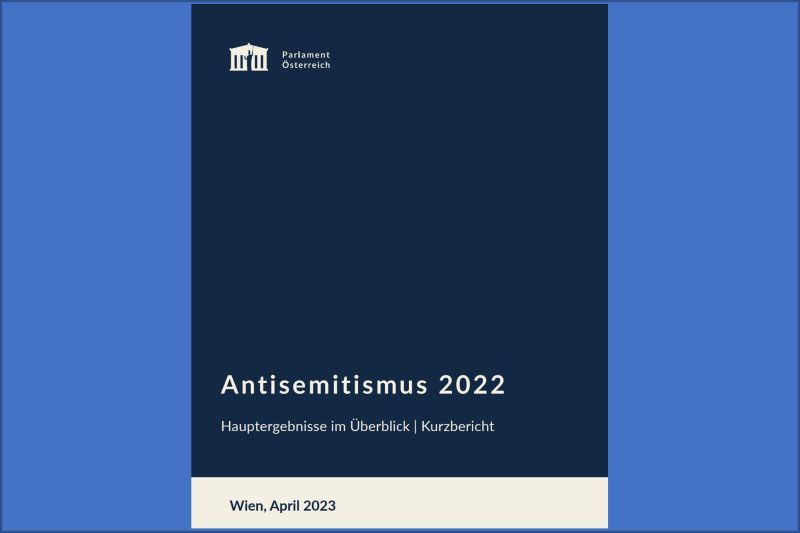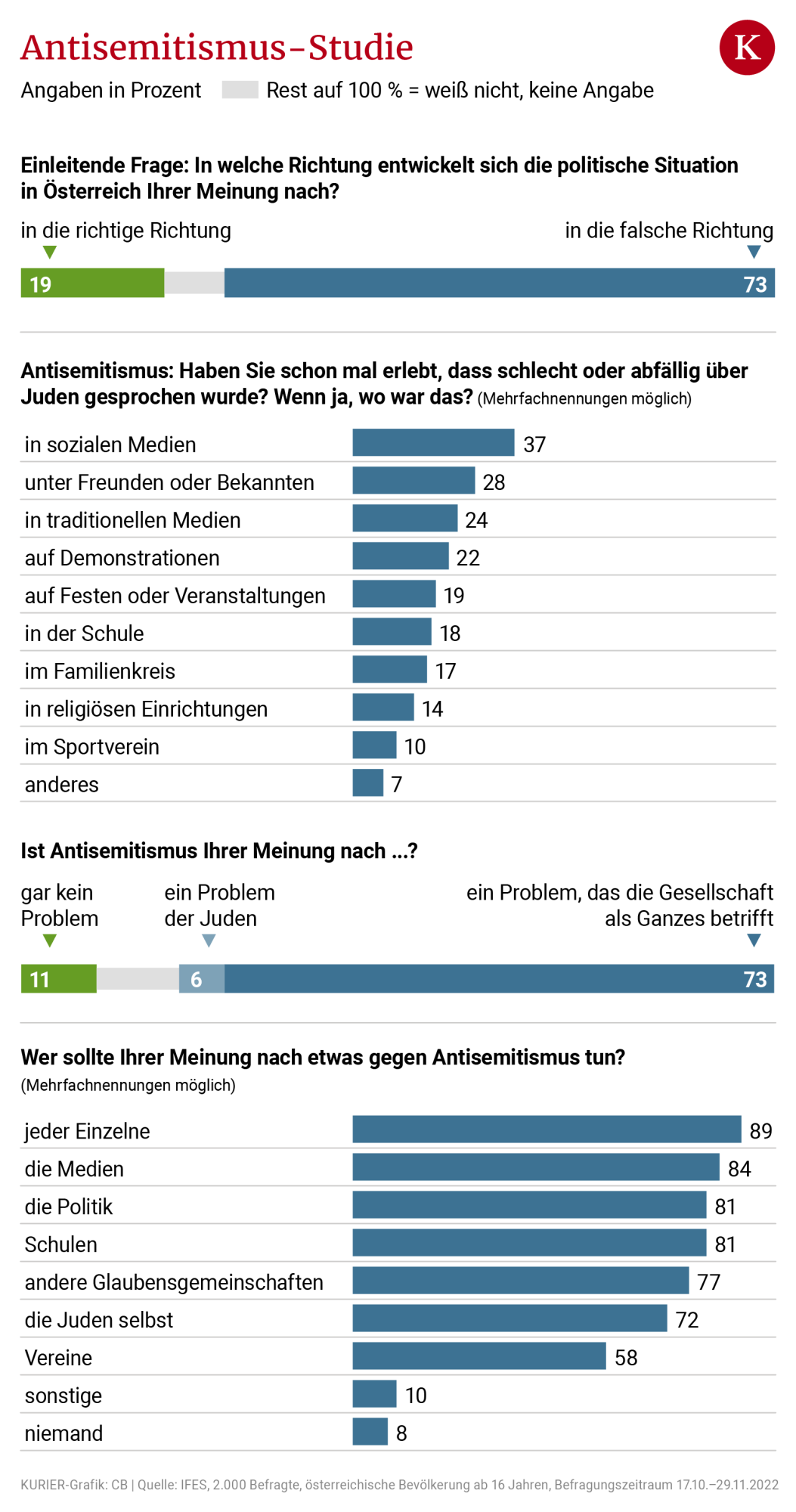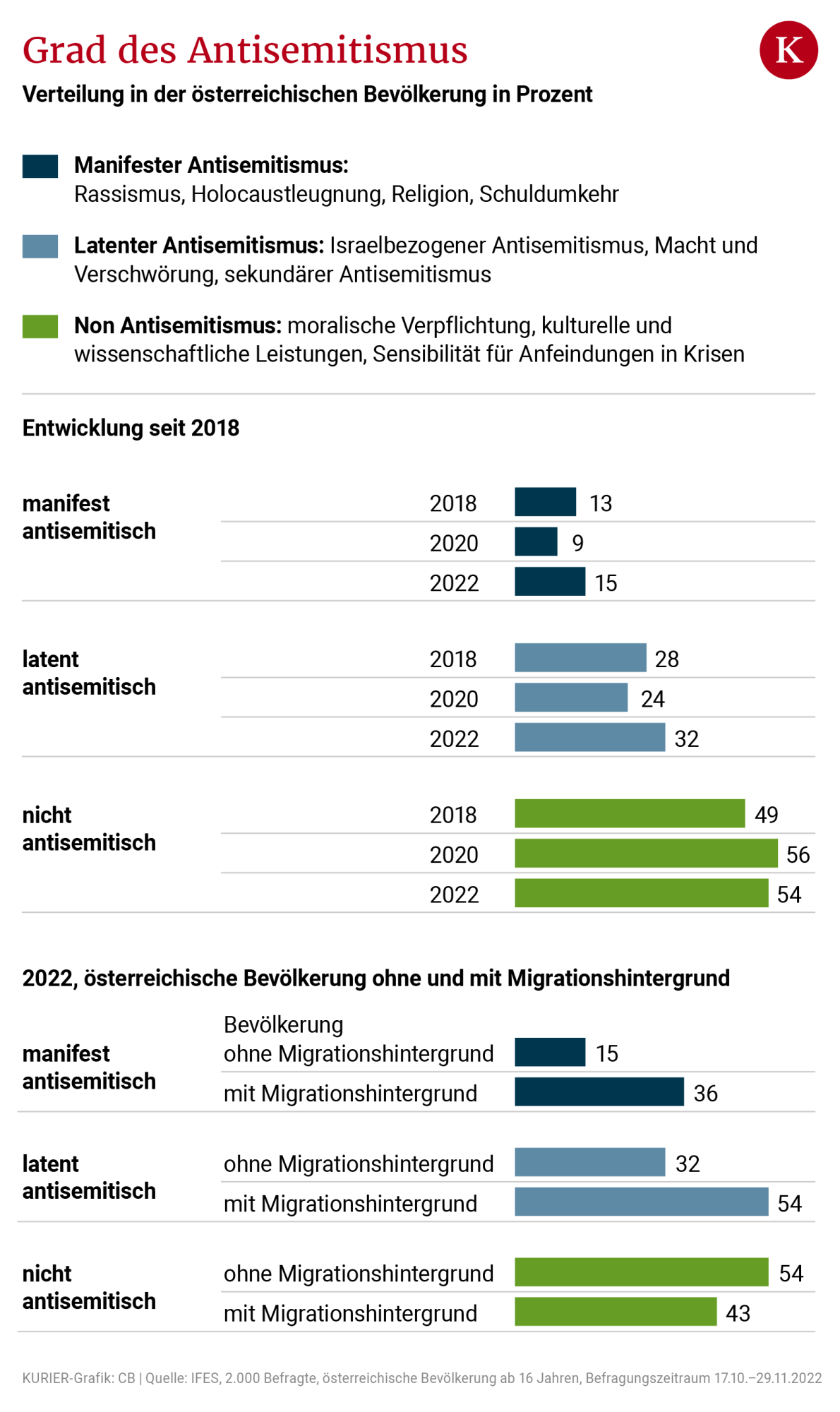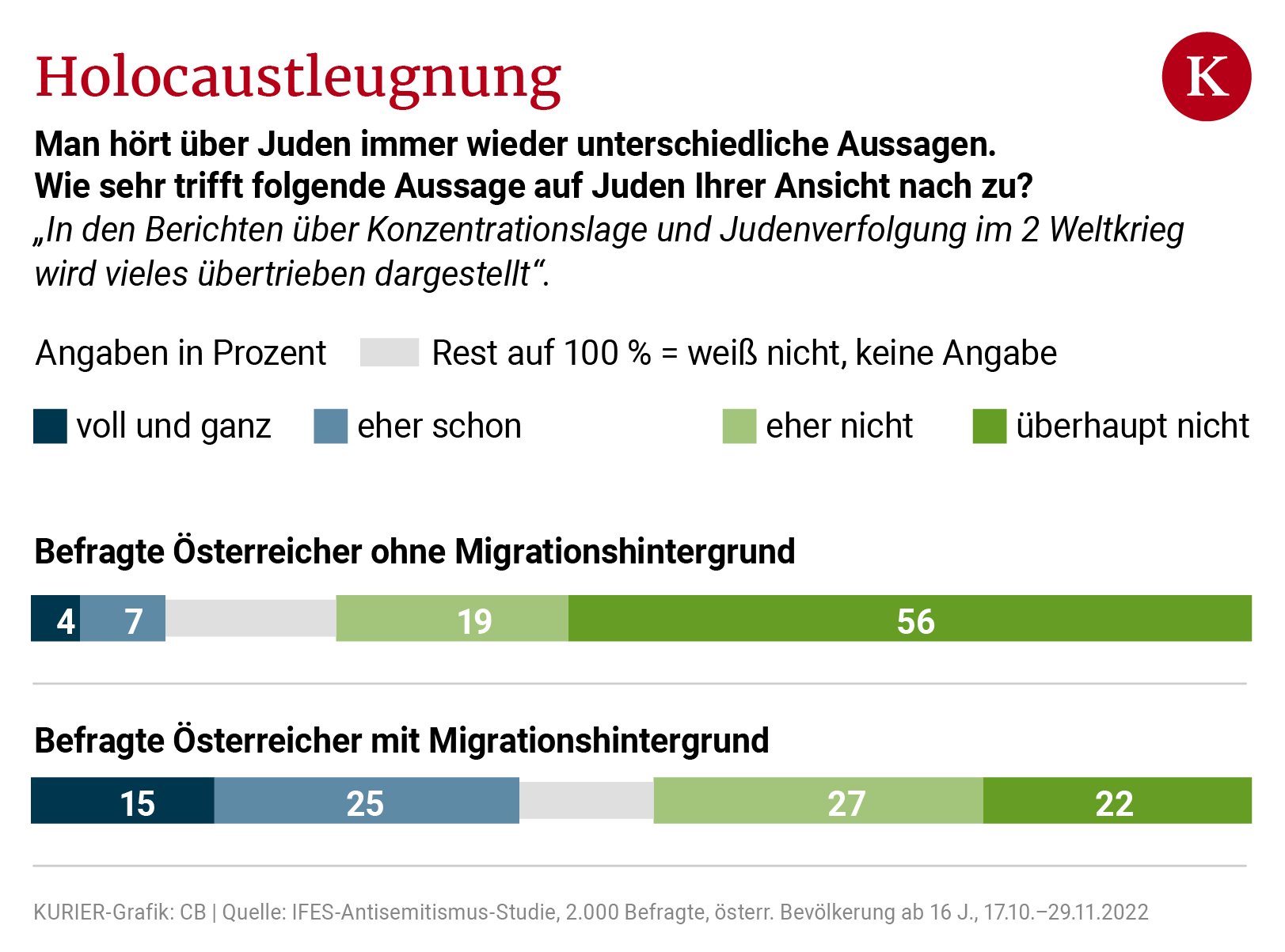The third antisemitism study was presented in Parliament today. It shows that antisemitism is on the rise. What part education, age, origin and global crises have in it.
The pleasing trend of previous years is over. This is the conclusion of the third study commissioned by the Austrian Parliament, which is extensively devoted to the complex of issues of antisemitism. 2,000 people over the age of 16 were interviewed by IFES and Demox Research.
If you compare the results of 2018 and 2020 with the study from 2022 that has now been published, it shows that anti-Semitism is back to the 2018 level after declining trends during the corona pandemic. In some cases the values were exceeded.
According to National Council President Wolfgang Sobotka , Eva Zeglovits (IFES) and Thomas Stern (Braintrust), this can also be attributed to the respective times of the survey.
In 2018, “normality” prevailed, as the study authors describe it. Two years later, the attitude changed – in particular due to the pandemic and the terrorist attack in Vienna in November 2020 (although at the time of the survey it was not clear whether the attack was aimed at Jewish institutions). If the antisemitic attitudes or attitudes were lower in 2020, they rose again in the previous year.
According to the authors of the study, the reasons for this can be traced back to “multiple crises”. This does not only mean the pandemic, the Ukraine war, climate change, the energy crisis and persistent inflation, but also the loss of confidence in politics and the media.
“Crises fuel conspiracy myths, which in turn are very often closely linked to anti-Semitism,” say the authors of the study. “So the current crises could have an impact on anti-Semitism.”
73 percent of those questioned state that the political situation in Austria is going in the wrong direction. Exactly that many respondents say antisemitism is a problem that affects society as a whole. Six percent see it as a problem for the Jews themselves.
Antisemitism on social media
Six out of ten people stated in the survey that they had already heard antisemitic statements. This happens most often on social media (37%), followed by acquaintances and friends (28%) and traditional media (24%).
As in previous years, the study differentiates between manifest antisemitism (racism, Holocaust denial, religion, reversal of guilt), latent antisemitism (Israel-related antisemitism, power and conspiracy) and non-antisemitism (moral obligation, cultural and scientific achievements, sensitivity to hostilities in crises).
Manifest antisemitism has increased from 13 percent (2018) to 15 percent (2022), latent antisemitism from 28 to 32 percent and non antisemitism from 49 to 54 percent.
If one compares these categories within the total sample with persons who were either born in Turkey or an Arab country or whose parents were born there, the picture changes. (Note: The Arabic-speaking respondents have a family history of migration that started in Egypt, Syria or Iraq).
Those designated by the authors of the study as the “top-up group” – most of them were born, grew up and went to school in Austria – have far higher values in all three categories. This is most evident when it comes to questions relating to Israel-related antisemitism.
The statement: “If the state of Israel no longer exists, then there will be peace in the Middle East” was agreed by 14 percent of respondents “completely” and “rather yes”. In the top-up group it is 47 percent.
The situation is similar with the statement: “Many things are exaggerated in the reports on concentration camps and the persecution of Jews in World War II”. 56 percent do not agree at all. In the top-up group it is 22 percent.
According to the survey, the unbiased basic attitude towards people who believe in Judaism – i.e. non-anti-Semitism – is more widespread than antisemitism. 65 percent state that “Jews have contributed a great deal to Austria’s cultural life “.
Education and conspiracy theories
The surveys also show that there is a connection between educational qualifications and antisemitism. People with higher formal education show far fewer antisemitic attitudes and tendencies than those who only have a compulsory education.
However, it should be borne in mind that the better educated also tend to give socially desirable answers, as the study authors write.
There also seems to be a significant connection between antisemitism and belief in so-called conspiracy theories. According to the study, antisemitism and anti-Americanism go hand in hand. The more the USA is perceived as a threat to world peace, the stronger the antisemitism.
According to the study, everyone has a responsibility to take a stand against antisemitism and put a stop to it. 89 percent say that everyone can do something against antisemitism. 84 percent see the media as responsible, 81 percent as politicians and just as many as schools.









